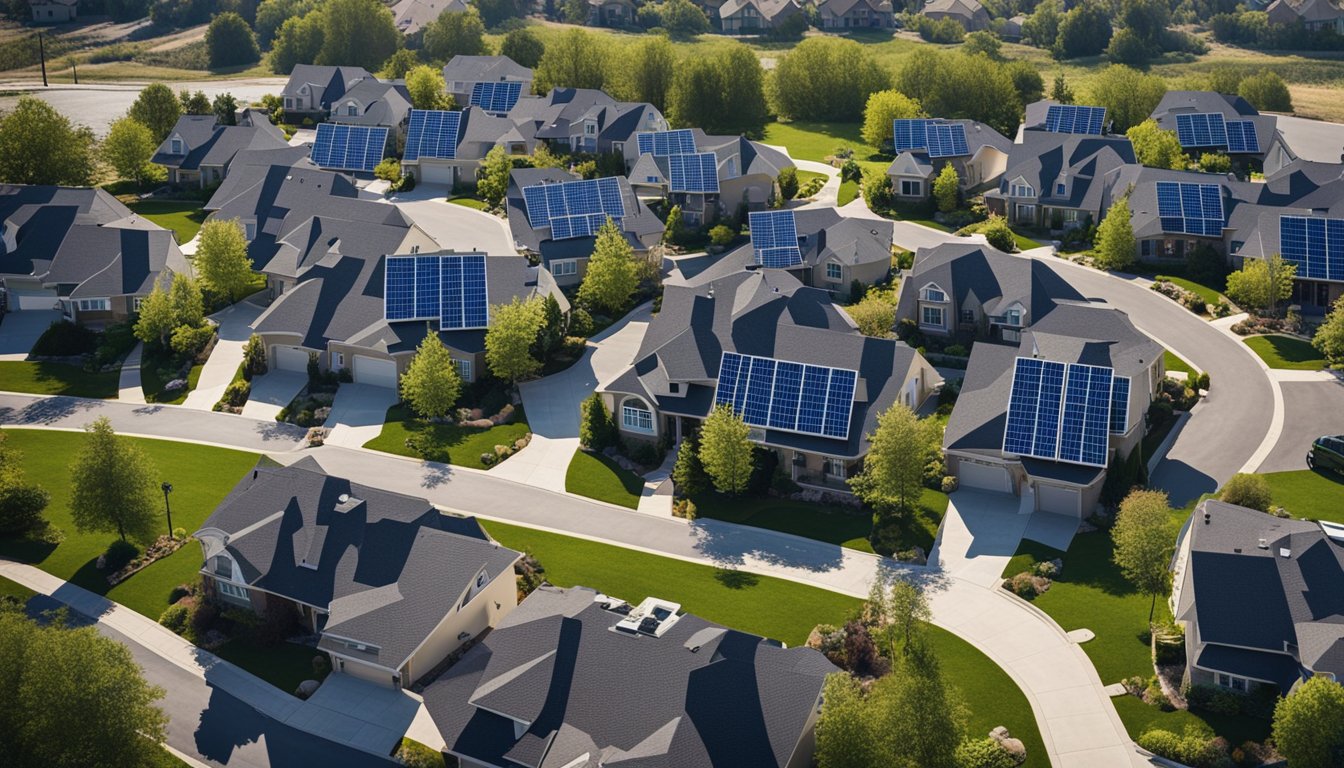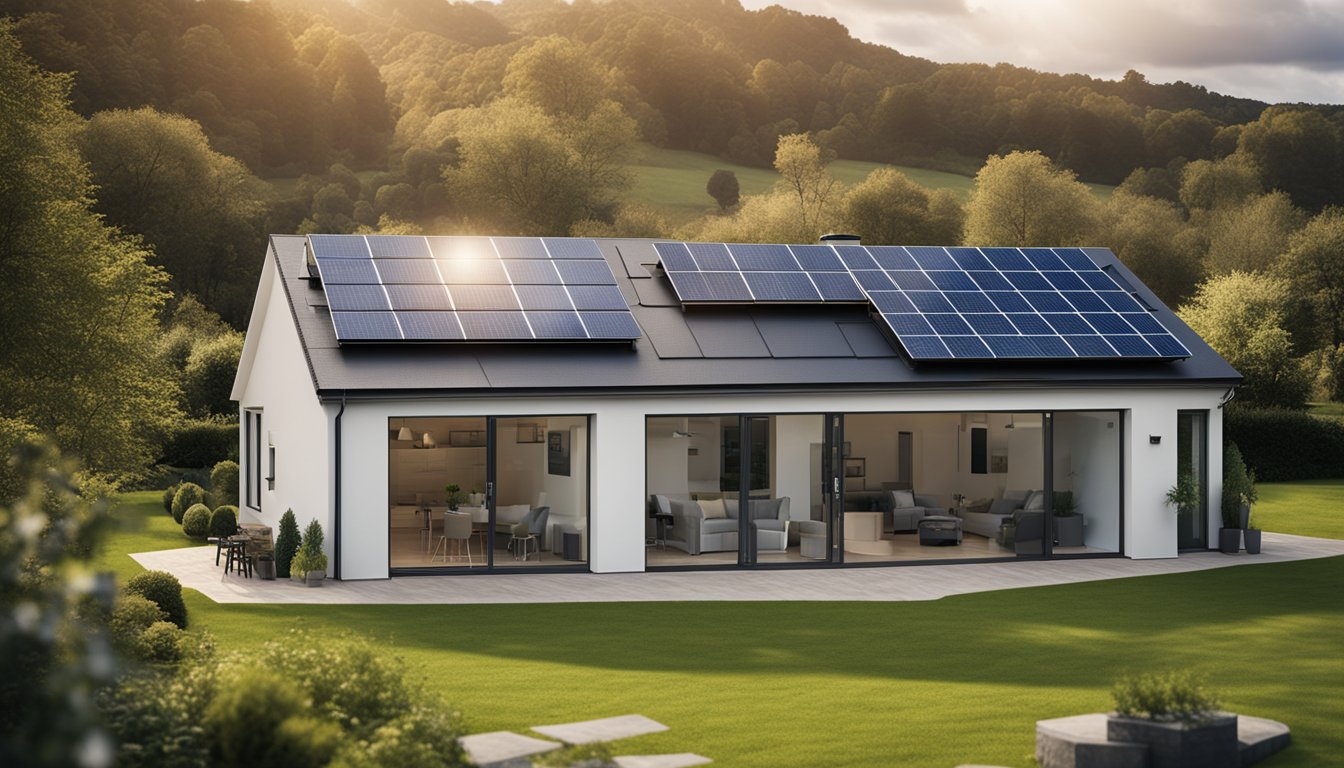Late updated: 07 Mar 2025 11:03
Written by: Eleanor Hartman
Optimising UK Homes With Renewable Energy Solutions: Unlocking Sustainable Living
Optimising UK homes with renewable energy solutions is an exciting opportunity to significantly reduce our carbon footprint and enhance energy efficiency. The integration of cutting-edge technologies like solar panels and advanced insulation not only addresses the urgent need for sustainable living but also offers practical benefits such as cost savings on utility bills. Investing in renewable energy solutions for our homes allows us to decrease our reliance on fossil fuels and promote a healthier environment for future generations.

It's crucial to assess the current energy efficiency of our homes. This involves evaluating insulation quality, window performance, and heating systems. By identifying areas for improvement, we can implement targeted solutions that transform our homes into energy-efficient havens. The ultimate goal is to create spaces that not only conserve energy but provide a comfortable living environment all year round.
Incorporating renewable energy sources goes beyond just adding solar panels; it's about creating a holistic approach to energy management. Through optimised designs and modern technologies, we can ensure our homes are not only sustainable but also adaptable to the evolving energy landscape.
Key Takeaways
- Renewable solutions enhance energy efficiency and reduce bills.
- Assessing home efficiency is vital for targeted upgrades.
- Modern technologies offer adaptable and sustainable living solutions.
Assessing Home Energy Efficiency
Assessing a home's energy efficiency is crucial for reducing energy consumption and lowering carbon emissions. By conducting an energy audit, employing retrofitting strategies, and utilising advanced energy management tools, we can significantly enhance a home's performance and achieve substantial energy savings.
Conducting an Energy Audit
An energy audit is our first step in understanding a home's energy performance. It involves a comprehensive evaluation of various factors, including insulation quality, heating systems, and air sealing.
By identifying areas where energy loss occurs, we can prioritise improvements effectively. Professional auditors use sophisticated tools to measure current energy consumption and provide detailed reports. These audits help us understand a property's energy footprint and guide us in formulating strategies to minimise energy bills.
Retrofitting for Enhanced Performance
Once we've identified inefficiencies, retrofitting becomes essential. This process involves upgrading insulation, enhancing ventilation, and improving air sealing to elevate a property's energy efficiency.
Retrofitting can include installing energy-efficient windows and doors, upgrading heating systems, or integrating renewable energy sources like solar panels. By focusing on these improvements, we can achieve considerable energy savings and contribute to lowering carbon emissions. Retrofitting not only enhances comfort but also extends the lifespan of property systems.
Energy Management Tools and Techniques
Utilising energy management tools enables us to monitor and control energy consumption effectively. Solutions like E.ON Optimum provide insights into usage patterns, allowing homeowners to make informed decisions about energy consumption.
These tools offer real-time data on energy usage, helping us adopt behaviours that maximise energy savings. Implementing smart thermostats and automated systems can further streamline energy management. By combining technology with efficient strategies, we can optimise energy use and achieve substantial reductions in energy bills.
Implementing Renewable Energy Solutions

Implementing renewable energy solutions in UK homes can significantly reduce greenhouse gas emissions and improve energy efficiency. Key methods include harnessing solar power, integrating air and ground source heat pumps, and adopting wind energy technologies.
Harnessing Solar Power
Solar panels are an effective way to generate clean electricity. Photovoltaic (PV) systems installed on rooftops convert sunlight into electricity, which can power household appliances and reduce energy bills.
Energy savings increase with systems that include battery storage. This allows us to store excess energy during sunny periods for use at night or during cloudy days.
The return on investment (ROI) for solar installations improves over time, especially when considering government incentives and feed-in tariffs. Despite the initial expense, solar panels add value to properties and contribute to a sustainable future.
Integrating Air and Ground Source Heat Pumps
Air source heat pumps and ground source heat pumps are vital for improving energy efficiency and reducing reliance on fossil fuels. Air source heat pumps extract heat from the air, while ground source ones tap into the earth’s natural warmth.
Both systems are designed to provide heating and hot water to homes effectively. These pumps lead to significant reductions in greenhouse gas emissions, offering a viable alternative to traditional heating systems.
Not only do they enhance indoor air quality, but they also support sustainability efforts by reducing energy consumption and lowering electricity bills. Installing these systems often requires careful assessment of the property's insulation.
Adopting Wind Energy Technologies
Wind power, through the use of small wind turbines, offers another renewable energy source for homes with sufficient land and wind resources. These turbines convert wind energy into electricity, cutting down on energy costs.
Installation of wind turbines must consider local wind patterns and planning permissions. Despite these considerations, wind energy can offer significant energy savings over time, especially in rural areas with open landscapes.
Adopting wind technology contributes to clean energy goals and promotes a sustainable lifestyle. The initial investment varies depending on turbine size and location, yet can be offset by reduced energy bills and environmentally friendly reputation.
Frequently Asked Questions

Navigating the world of renewable energy for UK homes can lead to numerous inquiries. We address the most pressing questions about eco-friendly upgrades, optimal energy strategies, and government recommendations.
What are the most cost-effective renewable energy solutions for UK homes?
Solar panels and heat pumps lead as the most cost-effective solutions. Solar panels can significantly reduce electricity bills. Heat pumps, both air-source and ground-source, offer efficient heating options.
How can energy efficiency be maximised in a UK home retrofit?
To maximise energy efficiency, we should incorporate insulation improvements, such as cavity wall and loft insulation. Incorporating energy-efficient windows and upgrading to LED lighting also contribute substantially. These measures help conserve energy and reduce long-term costs.
What are the key considerations for a net zero retrofit in UK properties?
Achieving net zero requires thorough planning. Focus on using renewable energy tech, maximising insulation to reduce heat loss, and implementing smart energy management systems. Consideration of solar PV systems, efficient heating solutions like heat pumps, and reducing energy consumption are essential.
Which renewable energy sources are best suited for UK households?
Solar and wind energy are highly suitable for UK households. The UK's weather supports both technologies. Moreover, biomass and geothermal options can be considered, depending on local availability and property suitability.
What are the typical costs associated with upgrading a home to eco-friendly standards in the UK?
The cost can vary widely, from around £5,000 for basic upgrades to over £20,000 for comprehensive retrofits. Factors influencing cost include the type of renewable technology installed and the extent of necessary home improvements.
What strategies does the UK government recommend for homeowners to power their homes using renewable energy?
The government encourages adopting solar panels and installing heat pumps through incentives like the Renewable Heat Incentive (RHI). Emphasis is also placed on improving home insulation and engaging with energy efficiency schemes to maximise benefits from renewable technologies.